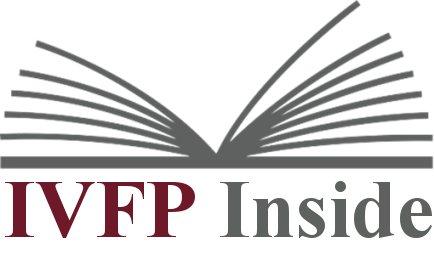AB SICAV I – International Health Care Portfolio: Fast 40 und besser denn je
FondsSuperMarkt: The AB International Health Care Portfolio is a legend. Launched in 1983, the fund will be 40 years old next year, making it one of the oldest sector funds ever. Why has the fund, unlike many other themed funds, lasted so long and been so successful?
Vinay Thapar: The fund has a long and distinguished track record at AB, with John H. Forgarty (29 years of investment experience) joining the team originally before I joined him as Portfolio Manager of the fund in 2013 (I have 22 years of investment experience). As a Portfolio Manager, I find the healthcare sector a fascinating universe to invest in, at a time when post-COVID, we have seen major new super-trends such as virtual medicine, robotics and Artificial intelligence all emerging faster than ever before. The sector is being revolutionized by technology and innovation and this makes it more exciting for investors than ever. Finally, the unique character of the sector means that it offers investors the general upside of global equity markets but tends to fall less when markets fall, which we have seen amidst recent intense volatility as geopolitical tensions have erupted in Europe. Thankfully in the last decade the fund has done well in generating returns and investors seem happy to stay invested.
FondsSuperMarkt: How long have you and John H. Fogarty been responsible for the fund? What is the size of the team and experience behind the fund?
Vinay Thapar: My history has been in healthcare company analysis and it’s that perspective I bring to the fund, and how I re-engineered its process. What was important to me was to bring a level of investment discipline to a category of funds that has tended to rely on some level of insight into how clinical drugs trials might work out. We refer to this as investing in the business, not in the science.
As I am also a Portfolio Manager for our flagship American Growth fund, I am able to draw on a broader base of analysis in particular for US large cap stocks and analysis, which can also flow into the Healthcare Portfolio. John and I are expertly supported by an experienced team of 6 sector analysts as well as one ESG analyst and 1 quantitative analyst – a total of 10 investment professionals all contributing their different experience, expertise and insights to deliver long-term investment performance for our investors.
FondsSuperMarkt: The AB International Health Care Portfolio has again had excellent performance over the past year with over 32%. What were and are the strongest drivers of this value growth? Which stocks contributed the most?
Vinay Thapar: Yes, 2021 was a strong year for equity markets and we were able to add some alpha within our healthcare domain. We try to produce performance based on the companies we invest in and not by timing the market or making predictions on biotech companies. Novo Nordisk was our top contributor, followed by holdings in Zoetis and UnitedHealth Group. Novo Nordisk, a global company focused on diabetes and obesity medications and biopharmaceuticals, contributed to relative performance. Management increased guidance, which reflected the strong performance of its new obesity drug, Wegovy, indicating that initial demand is outstripping supply. The launch of the drug has created a lot of interest in the stock given the huge potential market and commentary from management served to increase confidence further.
Zoetis, the world’s largest producer of pet and livestock medicine, contributed. The company has had strong revenue growth and continues to benefit from trends in animal health and pet ownership.
UnitedHealth Group also contributed during the period. The diversified managed health care and insurance provider’s value proposition is compelling for both patients and payors as it combines health care delivery under one roof to ensure continuity of care at lower costs. Strong quarterly results were driven by lower health care utilization as the coronavirus delta variant deferred elective procedures and as customers become more accustomed to using alternative care sites such as telehealth and urgent care, rather than relying on more expensive hospital emergency rooms.
FondsSuperMarkt: What impact(s) did the Covid pandemic have?
The pandemic has taught us the importance of well-organized and well equipped health care systems as national priorities. Companies that can benefit from government healthcare policy and help reduce costs in the overall system should also be long-term beneficiaries. Consistent innovation and med-tech offer the possibility to combine technological innovation with healthcare as a necessity in order to drive growth.
Diagnostics is an exciting segment of the industry. The pandemic taught us the hard way that a more sophisticated testing infrastructure could have helped prevent the spread of COVID-19. So there will be increased efforts—particularly by governments—to develop preventative diagnostics capabilities. We’ll see significant investment in surveillance and tracking systems.
FondsSuperMarkt: Over the long term, the MSCI World Health Care Index, which serves as the fund benchmark, has also significantly outperformed the industry-wide MSCI World Index. To what do you attribute this outperformance? In your view, can the health care sector serve as a core investment?
Vinay Thapar: Yes, we absolutely believe that the healthcare sector can serve as a core investment. Healthcare offers both offensive and defensive characteristics. It offers positive exposure to long-term secular growth relating to demographics while being less exposed to the macro environment. Revenue growth is relatively stable in times of uncertainty, and many companies’ share prices are less volatile than other sectors but retain pricing power. The global healthcare industry is experiencing dramatic transformation. Rapid innovation is paving the way to new drugs, diagnostics and treatments, but growing pressures related to pricing, policy and demographics present challenges.
FondsSuperMarkt: What are the current valuations of the stocks you have selected? What is the impact of rising inflation and capital market rates on your portfolio allocation?
Vinay Thapar: We see three primary uncertainties that will impact health care stocks in 2022. The first is the impact of the evolving rate environment on growth-oriented stocks. Second, we are monitoring how COVID-19 and the omicron variant is impacting markets, while remaining optimistic that the worst of the pandemic is behind us. Finally, the midterm elections in the US are also an uncertainty that could impact a wide swath of health care companies. However, we remain confident there will not be any meaningful legislative changes to the US health care system in the near term. Regardless, we continue to monitor legislation that both parties may have an interest in advancing—namely incremental changes to drug pricing.
In this environment, investors are trying to determine what a post-COVID-19 “normal” will look like. This will be different for individual companies, underscoring the importance of focusing on the underlying economic fundamentals of businesses. Companies with high-quality business models exhibit more persistent fundamental and investment performance and will, in our view, be well equipped to navigate the challenges this year is presenting.
Going forward, we anticipate an increase in volatility with the prospect of inflationary headwinds pressuring margins and valuations. We remain positive on long-term, innovation-driven health care trends, and continue to believe the global health care sector represents a unique and attractive intersection of innovation and defensiveness for long-term investors.
We look for businesses that are profitable and reinvesting so we continue to believe there are opportunities to do that and in the current environment. As expectations for higher rates have come into play, we’ve seen some of the higher growth, lower profitability companies’ prices come off as investors aren’t willing to pay up for the future growth of those businesses as discount rates increase. But we’re still finding opportunities among the more profitable parts of the market and valuations for select names have become more attractive.
FondsSuperMarkt: What is the fund’s investment process? Do the 150 or so companies in the benchmark also form the fund’s universe, or do you look beyond the index for attractive investment opportunities? What factors are critical in your investment selection? How actively do you make use of the option to hedge the equity portfolio through forward transactions?
Vinay Thapar: We seek to invest in the very best businesses using in-depth research and analysis. These companies have high or improving returns on capital and strong reinvestment rates. Instead of trying to predict medical science or research results, we focus on the business. This is the key to generating successful investment outcomes. Apart from companies in the MSCI index, we look at those in the broader US Russell 3000 and also look beyond benchmarks for healthcare or healthcare-related companies.
Investors don’t have real insight into what drives successful scientific outcomes. So instead of trying to predict blockbuster scientific breakthroughs, we think it’s more important to focus on innovative companies with strong business fundamentals that can generate profitability gains over time and long-term returns for investors. In addition, we believe it’s important to have a holistic view of healthcare rather than a specific focus (such as biotechnology, medical devices, etc). Thus, by standardizing the process to focus more on the economic fundamentals of the business irrespective of sector, we believe we can identify the best healthcare investments across the entire landscape.
As long-term investors we spend a great deal of our time thinking about the future, with a 3-5 year outlook and looking for those businesses where we have long-term conviction in the fundamentals and outlook for the company and then methodically adding to those positions within the portfolio. We believe that companies that can innovate and lower costs will be best positioned for longer-term outperformance as it will be increasingly important for healthcare companies to justify the value their products provide for the overall system. Conversely, we continue to expect companies that take on significant amounts of leverage and/or engage in large M&A transactions to drive earnings growth at the expense of Return On Invested Capital (ROIC) will be disadvantaged.
Rather than try to focus on particular trends, or try to predict clinical trial success, earnings growth and near-term P/E multiples, we prefer to focus on return ROIC and reinvestment rates. Notably, we believe ROIC is an underappreciated metric in assessing business fundamentals. We continue to see several companies that can improve their ROIC and strong reinvestment rates above what the market is currently discounting.
We are a long-only fund so we don’t hedge our equity exposure.
FondsSuperMarkt: According to your factsheet, at the end of last year stocks from the pharmaceutical sector had the largest portfolio share with around 30 percent, followed by biotechnology, medical technology and medical services with around 20 percent each. Are these weights the result of your individual stock selection or deliberate sector management?
Vinay Thapar: We build the portfolio bottom-up so that industry weights are a byproduct of the attractiveness of the companies in those industries. We do monitor the risk that industry over and underweights brings and weigh that up against our conviction in the stocks themselves.
FondsSuperMarkt: U.S. companies account for around two-thirds of the portfolio, which is even slightly lower than their share in the fund benchmark. How does this strong position come about, and how do you assess the country risk?
Vinay Thapar: As with industries, our bottom-up approach means that country weights are a byproduct of the attractiveness of the companies in those countries, and we monitor the risk that brings. In recent years, the US has been home to a significant portion of the world’s most profitable companies, based on the factors that we screen for.
FondsSuperMarkt: Do you also invest in companies from emerging markets?
Vinay Thapar: Yes, we have this flexibility – we look at the investment universe more thematically rather than geographically. If a company meets our investment criteria, then we will include it in the portfolio, subject to the risk it brings, regardless of domicile. We currently have a position in CSPC Pharmaceutical in China and Granules in India.
FondsSuperMarkt: What role do digitalization and sustainability, two of the most important global growth drivers, play for the healthcare industry and the development of corporate earnings?
Vinay Thapar: Both of these play key roles in the healthcare industry. In terms of sustainability, healthcare is probably the ultimate social tool – our health and wellbeing are key to the sustainability of the human race. But that can’t be at the expense of the environment, where we’d consider the impact of medical waste. There are also moral questions which we pay attention to, such as issues around genetic modification.
The opportunity for digitalization is more tangible as one of the strong dynamic trends that is driving innovation in the sector at an ever-increasing pace and presenting investors with attractive potential opportunities around the world. In the 21st century, we are currently witnessing a surge of innovation. This is transforming everything from robotic surgery technologies, to preventative medicine via new diagnostic capabilities that may allow us, for example, to carry out a blood test and diagnose some cancers in advance.
Efforts to bring medical care closer to the home are growing. The more you can keep people out of the hospital and intervene earlier, the better it is for the patient and for society. Digital technology will also be used more broadly, for example, to identify patients who are at risk of a bad outcome, which can help determine the sequence of care.
Data analytics are becoming more commonplace to improve outcomes too in innovative ways. For example, data analytics can help surgeons understand where their technique could be better and refine their skill set.
Telehealth is a good example, where a combination of technology and healthcare drives change. This trend was accelerated by the pandemic, as tele-health allows medical professionals to safely offer medical advice and diagnosis, delivered virtually to patients’ homes
FondsSuperMarkt: The AB International Health Care Portfolio commits to consider sustainable investment criteria in the prospectus. What ESG criteria are incorporated into your selection process?
Vinay Thapar: ESG is integrated into our equity research and investment process to help us identify the highest quality and lowest risk growth opportunities. I partner with our dedicated ESG analyst to identify, understand and analyze potentially material ESG issues in their fundamental research. All material ESG-related issues are addressed primarily through our own proprietary research and company engagement, as well as through additional external inputs, such as third-party ESG research and stakeholder engagement. Systematic, team-defined ESG integration into the research process aligns with our long-term investment horizon and informs our company engagement which enhances the management exchange.
Of course, as a healthcare fund, we don’t invest in tobacco, weapons, fossil fuels or other traditionally ESG-excluded industries.
Fondsdetails: AB SICAV I – International Health Care Portfolio A EUR
ISIN LU0251853072
WKN A0JMHJ
Fondskategorie Branchenfonds Gesundheit
Ausgabeaufschlag 5% (FondsSuperMarkt-Rabatt 100%)
Ertragsverwendung Thesaurierend
Laufende Kosten 1,96 %
Performancegebühr Keine
Auflegung 20.07.1983 (Anteilsklasse A EUR: 24.11.2000)
Fondsvolumen 2.935,11 Mio. USD (28.02.2022)
Performance 10 Jahre Durchschnittlich 15,20 % p.a. (28.02.2022)
Risiko- und Ertragsprofil (SRRI) 6 von 7
Über AllianceBernstein
AllianceBernstein ist eine führende Fondsgesellschaft mit einem verwalteten Vermögen von 779 Milliarden US-Dollar (Stand 31. Dezember 2021). Wir arbeiten zukunftsorientiert, verfügen über ein unabhängiges Research und bieten Investmentlösungen für alle Anlageklassen – von Aktien über Anleihen und Multi-Asset-Portfolios bis hin zu alternativen Investments. Zu unseren Kunden zählen institutionelle Investoren, Retail und High-Net-Worth-Anleger weltweit. Durch die einzigartige Kombination von fachlicher Expertise, fundiertem Research und globaler Perspektive gewinnen wir umfassende Einblicke in die weltweiten Entwicklungen. Dieses Wissen fließt in unsere Investmentlösungen ein, damit unsere Kunden den Launen der Märkte möglichst immer einen Schritt voraus sind.
FondsSuperMarkt ist mit mehr als 24.000 angebotenen Produkten und sieben Partnerbanken – darunter comdirect und ebase – eine der führenden Fondsplattformen im Internet. Rund 15.000 Kunden vertrauen bereits auf das Angebot des unabhängigen Vermittlers von Investmentfonds ohne Ausgabeaufschlag. Dabei richtet sich FondsSuperMarkt an Anleger, die kostenbewusste Selbstentscheider sind und bietet diesen neben einer einzigartigen Zahl von Fonds mit 100 % Rabatt auf den Ausgabeaufschlag u. a. umfangreiche Analysetools zur Fondsauswahl. Zu den dauerhaft günstigen Konditionen zählt neben dem komplett entfallenden Ausgabeaufschlag bei den meisten Fonds beispielsweise ein kostenloses ebase-Depot bereits ab einem Depotvolumen von 1.500 Euro. FondsSuperMarkt gehört zur Miltenberger Finanzgruppe, die aktuell Kundenvermögen von rund 866 Mio. Euro betreut. Weitere Informationen unter www.fonds-super-markt.de. Stand: Januar 2022
FondsSuperMarkt
Engelplatz 59-61
63897 Miltenberg
Telefon: +49 (9371) 94867256
Telefax: +49 (9371) 9486710
https://www.fonds-super-markt.de/
Marketing und Presse
Telefon: +49 (9371) 9486720
E-Mail: jutta.kiffe@infos.com
![]()



